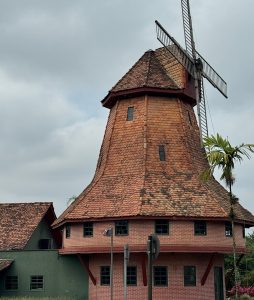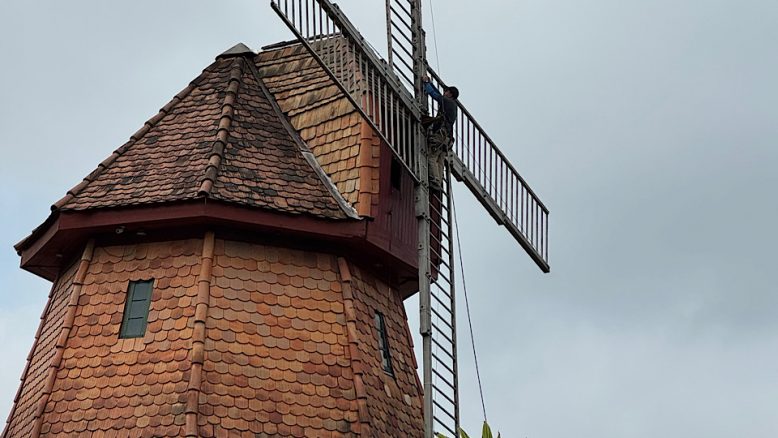Swinging from the vanes of the windmill a technician adjusts the pitch. The traditional Dutch landmark appears incongruous in the southern hemisphere. Globalization has seized icons with commercial imperialism. Rolling into Joinville one becomes image-aware of the subjugation of culture by the beverage industry. The detached portico welcomes visitors to Joinville, Brazil. The rustic wood roof covers two of the best maintained public washrooms in Brazil all the while maintaining traditional hardware in working condition. This juxtaposition occurs at most interfaces with visitors.
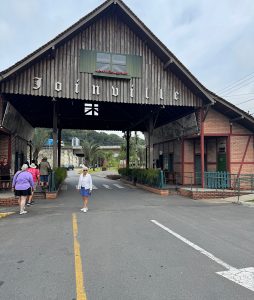
On the streets the art points to an undercurrent that promises a visual feast and promotes cultural development. The largest studio in the Centre of the city trains hundreds of students under the Bolshoi Theatre banner. In the Centre of Joinville the school has been operating since 2000 and in keeping with its mission, trains citizen-artists and disseminates education for the arts. The spinoff is seen in some very sophisticated visual art that tries capture motion in stillness.
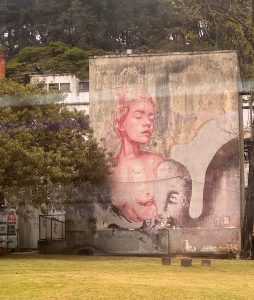
The entrances to buildings and overpasses have become canvases for stifled pallets. On buildings, store designs, window displays and in architecture the coupling of images has created a visual feast for visitors.
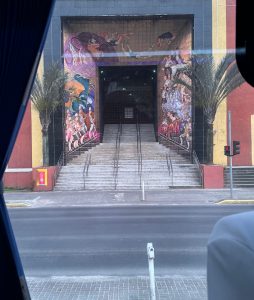
“It all begins in a windmill,” would be a good opening line for a short story that tries capture the influence of European culture and religion on the lives lived in Joinville. The windmill is a mark of conquest over the North Sea. The dislocation of the windmill hints at nostalgia. The Bolshoi school screams for connection to an old world. The city with unoccupied palaces and untrodden palm-lined boulevards has risen from the land beyond the dreams of the imperialist settlers. Joinville enfolds every blooming perspective in Brazil.
